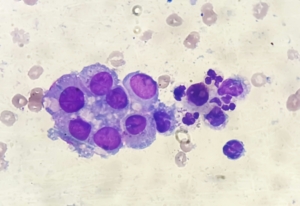
Fixing Europe (again)
Well ladies and gentlemen of the biotechnology community, welcome back after the silly season. I hope you had a nice one, whether it was in the sunny bit, the rainy bit or the bits that were on fire. As usual, summer in Europe was quiet. I see we still have a Eurozone, which is nice, and shows that the revolutionary, biotech-driven solution I came up with earlier in the year is still working.
But to business what startling insights and wisdom can I provide from Brussels this month? Very little based on activity over the summer, so I shall instead turn once again to my crystal ball, and present a list of predictions based on my incurable optimism.
European public funding: after a year of wrestling with the Framework pro-gramme and Innovative Medicines Initiative, my gut tells me that the agencies will at last start planning their funding together, finally allowing partners to plan an annual calendar of collaborative project applications without having to worry about deadlines all landing in the space of a single month.
National funding: countries in Europe will suddenly remember, in the midst of reducing funding for innovation, that it is innovation that drives economic growth. If all your scientists are fired, particularly those in SMEs, you throttle economic progress, making earlystage research pointless and large company growth in your country impossible.
Policymakers: these will return from their holidays miraculously alive to the fact that some things are not worth arguing about any more I refer of course to GM technology in food crops (just say yes or no), the EU patent law (just get it finished for crying out loud) and consumer genetic testing legisla-tion (don’t let quacks and charlatans sell tests).
Big companies: my inner eye is particular focussed here, foreseeing that the pipeline crisis and continued shrinkage of R&D capacity will revolutionise the way that large companies work with others. There will be less of a business on our terms’ approach to partnership and more quick movement, shared skills and earlier-stage partnerships.
Small companies: those rascals, they’re taking up a lot of space in my crystal ball. Biotech SMEs will certainly start working more closely together, rather than trying to nurse a single technology through to blockbuster status. And they will start to understand the strength brought about by partnership with other SMEs that they are stronger together than alone.
That’s it for my post-summer predictions and given my astounding success at curing the Eurozone crisis earlier this year, I’m sure they will all have come to pass by Christmas. See you next edition by which time that holiday tan will have faded and the silly season will be a distant memory.


 Unsplash+
Unsplash+
